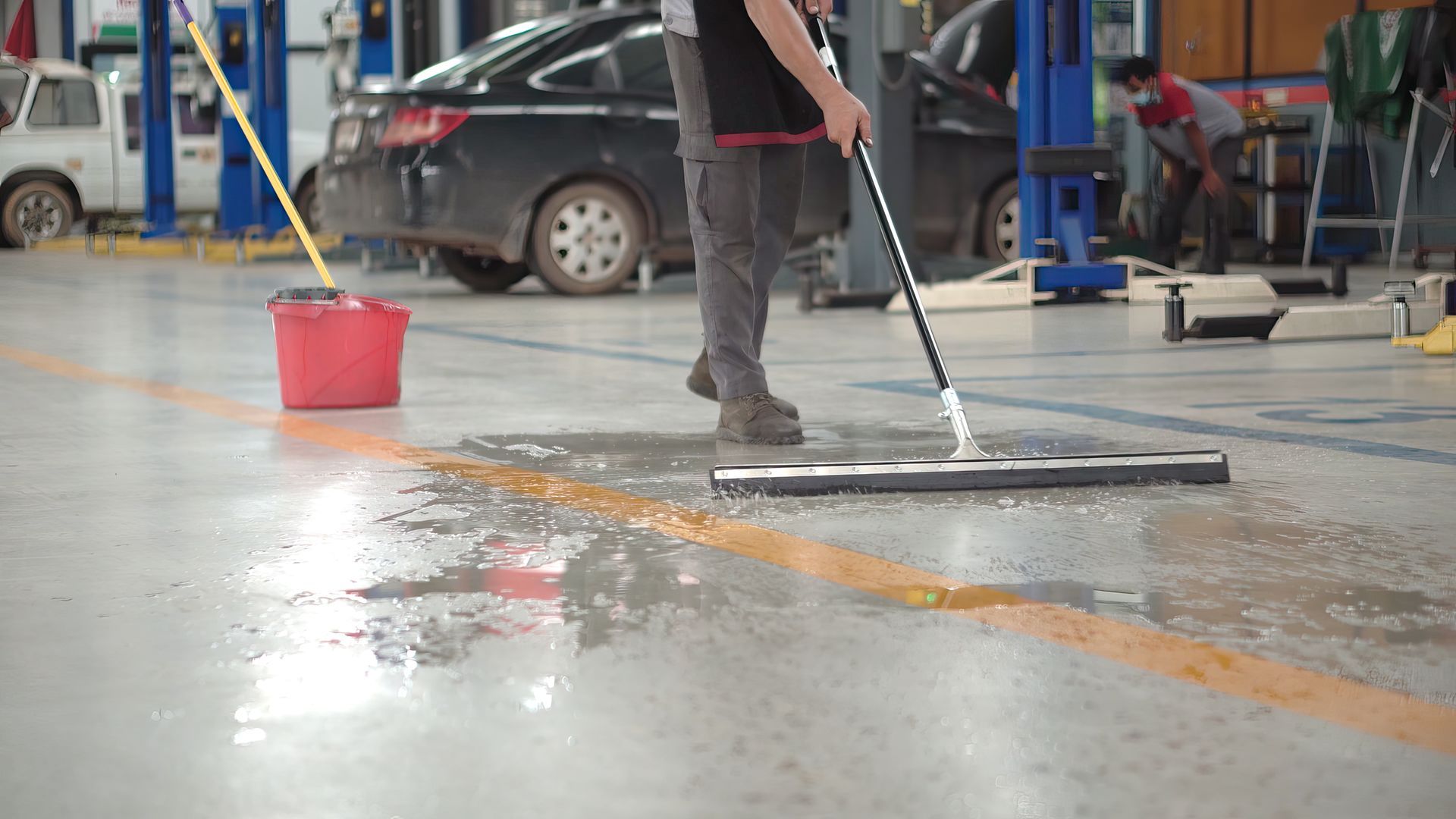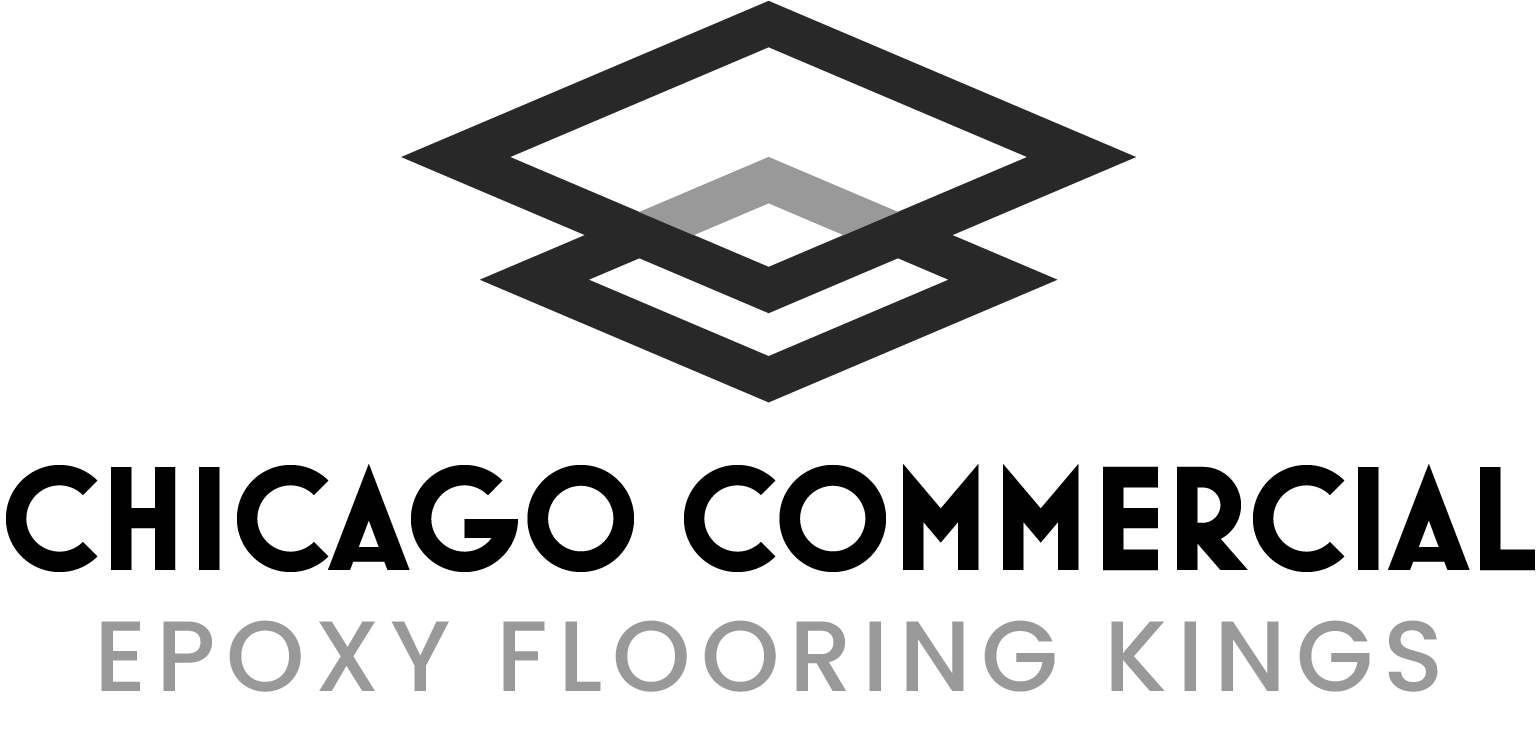Thermal Shock-Resistant Epoxy Flooring in Chicago, IL
At Chicago Commercial Epoxy Flooring Kings, we provide thermal shock-resistant epoxy flooring designed to handle sudden temperature changes without cracking or delaminating. Our heat resistant epoxy floors and high-temperature epoxy coating solutions are ideal for commercial kitchens, food processing epoxy floors, and other facilities that face extreme temperature fluctuations. With expert installation, we deliver industrial thermal shock flooring that ensures durability and long-term performance.
Our systems are built to withstand thermal cycling and rapid shifts between hot and cold, making them the perfect epoxy for hot and cold environments. By choosing our durable epoxy floor coating, you’re investing in a reliable surface that supports safety, efficiency, and compliance while meeting the demands of Chicago’s diverse climate and industrial operations.
Thermal Shock-Resistant Epoxy Flooring Solutions
What Is Thermal Shock-Resistant Epoxy Flooring?
Thermal shock-resistant epoxy flooring maintains structural integrity during sudden temperature fluctuations that cause standard epoxy to crack or delaminate. These systems incorporate flexible resins and thermal stabilizers that accommodate rapid expansion and contraction cycles without compromising bond strength or durability.
This technology is essential for industrial kitchens, cold storage facilities, manufacturing plants, and loading docks where equipment creates frequent temperature shifts. The enhanced formulation prevents micro-fractures and premature failure common in standard epoxy installations, ensuring reliable long-term performance in thermally challenging environments.
How Thermal Shock-Resistant Epoxy Works
The system incorporates modified epoxy resins with enhanced flexibility and thermal stability additives that allow controlled expansion and contraction during temperature cycling. Advanced molecular cross-linking creates a flexible matrix that absorbs thermal stress without transferring damaging forces to the substrate or causing surface cracking.
Controlled curing processes optimize molecular bonding while specialized additives like silica fillers improve heat dissipation and minimize internal stress. The system's low modulus allows flexing with substrate movement while maintaining chemical and mechanical properties, with temperature tolerance from -40°F to 300°F.
Key Features and Performance Benefits
Thermal shock-resistant epoxy delivers exceptional durability by resisting cracking and delamination under rapid temperature changes while maintaining superior chemical resistance against industrial spills and cleaning agents. The smooth surface reduces dirt accumulation and simplifies cleaning, with optional textured finishes providing enhanced slip resistance for workplace safety.
Performance benefits include extended 15-20 year service life despite continuous thermal cycling, reduced maintenance requirements, and minimal downtime compared to standard systems. These features deliver cost-effective solutions that eliminate expensive emergency repairs and operational disruptions while providing reliable performance in challenging thermal environments.

Industries and Facilities We Serve
Food and Beverage Processing
In food and beverage plants, floors face hot steam cleaning, cold storage areas, and temperature fluctuations during production. Our thermal shock-resistant epoxy flooring withstands these conditions without degrading.
This resilience minimizes downtime caused by flooring repairs and reduces contamination risks from cracked surfaces. Its seamless nature supports strict hygiene standards by preventing bacteria buildup in joints or cracks.
Pharmaceutical Manufacturing
Pharmaceutical facilities require clean, controlled environments where contamination is strictly prevented. Sudden temperature changes during sterilization or cooling cycles can damage traditional flooring.
Our thermal shock-resistant epoxy flooring maintains structural integrity and prevents surface failure under these conditions. It supports compliance with regulatory standards for sterile environments.
Commercial Kitchens
Commercial kitchens face frequent exposure to hot grease, boiling liquids, and rapid shifts from hot cooking areas to cold storage rooms. These conditions cause normal floors to crack or delaminate.
We provide epoxy floors that handle these thermal stresses while maintaining slip resistance. The flooring’s toughness prevents damage under heavy foot traffic and rolling equipment.
Why Choose Chicago Commercial Epoxy Flooring Kings
Local Knowledge and Coverage
We understand Chicago's unique climate and industrial requirements, which directly impact the performance of epoxy flooring. This allows us to recommend and install thermal shock-resistant solutions specifically designed to endure sudden temperature changes common in this area. Our team is fully licensed and insured, providing services throughout the greater Chicago area. We’re familiar with local building codes and safety standards, ensuring every project complies with regulations while offering maximum durability and protection.
Customer-Focused Process
Our process is designed around clear communication and transparency. From the initial consultation to project completion, we prioritize understanding your specific needs and timelines. We provide detailed project plans, including material specifications and expected performance metrics. Our team works closely with you to address concerns and ensure the flooring system meets your operational demands without delay.
Proven Track Record
We have completed numerous successful projects involving thermal shock-resistant epoxy flooring across diverse commercial sectors, including manufacturing plants and food processing facilities. Our references and case studies demonstrate durability and consistent performance under extreme conditions. We use industry-standard products and techniques that have been tested and validated in Chicago’s demanding environments.
Thermal Shock-Resistant Epoxy Flooring FAQs
How much does thermal shock-resistant epoxy flooring cost?
Thermal shock-resistant epoxy flooring typically costs $6 to $12 per square foot, depending on the temperature differential requirements and system complexity. Basic systems for moderate temperature changes start around $6-8 per square foot, while high-performance systems for extreme conditions like freezer facilities can reach $10-12 per square foot. The investment prevents costly floor replacements and operational disruptions from thermal cracking.
What's the best epoxy flooring for extreme temperature changes?
Flexible polyurethane-modified epoxy systems provide the best performance for extreme temperature changes, maintaining elasticity and bond strength across wide temperature ranges. These systems incorporate plasticizers and flexible resins that accommodate thermal expansion and contraction without cracking. For the most demanding applications, hybrid polyurea-epoxy systems offer superior flexibility and rapid temperature recovery while maintaining chemical resistance and durability.
Which thermal shock epoxy handles freezer to ambient transitions?
Polyurethane cement and flexible epoxy systems specifically formulated for cryogenic applications handle freezer to ambient transitions most effectively. These systems can withstand temperature swings from -20°F to 70°F without cracking or delaminating. The key is using low-modulus formulations with enhanced flexibility that accommodate the significant expansion and contraction cycles common in cold storage and food processing facilities.
How to get thermal shock-resistant flooring installed professionally?
Professional thermal shock-resistant installation requires contractors experienced with specialized application techniques and temperature-controlled environments. Look for contractors who understand thermal expansion joints, proper substrate preparation for temperature-sensitive areas, and timing requirements for multi-coat systems in varying temperatures. The installation often requires environmental controls and specific curing protocols to ensure optimal performance in extreme temperature conditions.
What's the temperature range for thermal shock epoxy systems?
Quality thermal shock epoxy systems typically handle temperature ranges from -30°F to 180°F, with some specialized formulations extending from -40°F to 200°F. The key specification is the temperature differential the system can withstand in a single cycle, typically 100-150°F temperature swings without structural damage. Performance depends on substrate preparation, system thickness, and the specific formulation selected for your operational temperature requirements.
